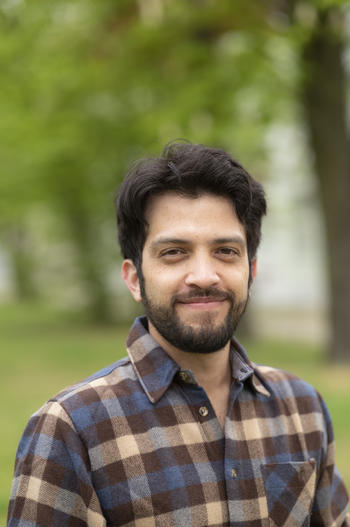Juan Ignacio Chávez Salas

International Research Training Group 'Temporalities of Future in Latin America'
PhD Candidate
Literature
Project: “National Futures: literature, culture and geography in Peru and Argentina”
14195 Berlin
Education
|
Since 05/2022 |
PhD Candidate, Humboldt University of Berlin; PhD Associate Candidate,International Research Training Group ‘Temporalities of Future’ |
|
09/2018 – 05/2020 |
Master in Creative Writing in Spanish at New York University |
|
09/2016 – 04/2019 |
Master in Philosophy “Erasmus Mundus Europhilosophies” at Charles University of Prague, Coimbra University, Toulouse II University |
|
03/2009 – 06/2015 |
Bachelor in Philosophy at Catholic University of Peru |
Work Experience
|
11/2020 – 07/2021 |
Editor, New York Beacon, New York |
|
05/2019 – 07/2021 |
Chief Editor, Temporales Magazine, New York |
|
09/2013 – 07/2016 |
Teacher Assistant, PUCP, Lima |
|
05/2012 – 08/2012 |
Intern, Diario El Comercio, Lima |
Project: “National Futures: literature, culture and geography in Peru and Argentina”
Supervisor: Professor Jörg Dünne (HU)
Mentors: Professor Susanne Klengel (FU), Professor Liliana Weinberg (UNAM)
My research studies nation-building from a geographical and literary perspective. Specifically, I analyze Peruvian geographer and poet Javier Pulgar Vidal’s, and Argentinian poet and essayist Bernardo Canal Feijoo’s socio-spatial imaginations and poetics when imagining the future of their respective nations. These two practitioners are at the intersection between 1920’s vanguard discourses of “indigenismo” and ethnographic “regionalismo”, on the one hand, and mid-century discourse of “national development”, on the other, where the metaphor of nation as map finds concrete applications. The comparative study between these authors seeks to benefit, on the one hand, from their similar dependence on archaeological and ethnographic imagination, and on the other, from the fact that they employ nonetheless opposite poetic approaches to nation-building. Whereas Pulgar Vidal’s poetics summons the historical Incan past in order to imagine the future, Canal Feijoo’s poetics points at the way in which anonymous, ethnographic “tempo” from massacred Indians during the Spanish Empire emerges in the present. This mild but crucial poetic difference determines not only their respective national imaginaries, but also their biopolitical endeavors as State-led planners. Ultimately, the differential analysis of these authors intends to bring not only new readings of the Peruvian and the Argentinian nation-building symbolic processes, but also new categorial correlations to the study of national poetics in postcolonial territories.
Chávez, Juan Ignacio (2014): “El sentido en Deleuze desde la fenomenología”, Estudios de Filosofía, PUCP.


